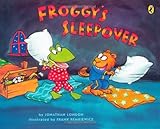Female Bottlenose Dolphins Use "Baby Talk" With Their Calves
Language
Reading Level
Listen to Article
Alignment

When it comes to brainpower, bottlenose dolphins are second only to humans. The intelligent animals are known to use tools, help fellow dolphins in distress, and even prepare their food to make it more palatable. Now, a new study has found that just like humans, dolphin moms change their voices when "talking" to their young ones.
Every bottlenose dolphin has a unique whistle. Similar to a human name, it allows them to identify themselves when communicating with other dolphins. But researchers at Florida's Sarasota Dolphin Research Program found that female dolphins alter their signature sound when they are around their calves.
Marine biologist Laela Sayigh first noticed dolphins using "motherese," or baby talk, in 2009. However, the researcher did not get an opportunity to investigate it further until recently. For the study, Sayigh and her team analyzed audio recordings of 19 female dolphins with and without calves. The sounds were captured during catch-and-release health checks of dolphins in Sarasota Bay from 1984 to 2018. The scientists randomly selected 20 whistles from each individual. They found that the mothers used a wider range of pitches around their calves. They were either higher than their regular whistles or slightly lower.
The researchers revealed their findings in the journal Proceedings of the National Academy of Sciences on June 16, 2023. They are unsure why dolphins change their voices when talking to their offspring. In humans, the higher pitch is believed to hold the infant's attention and develop their vocal skills.

But dolphin calves establish their unique calls by age two. Hence, it is unlikely that the mother is teaching them how to pronounce their "name." Sayigh speculates that the pitch change helps the calves identify the whistles specifically directed at them, strengthening the bond between mother and child.
The researchers say that the purpose of using "motherese" may be different in humans and dolphins. However, the study could help scientists understand the evolution of language in vocal species, including humans.
Resources: Science.org, theguardian.com, cbsnews.com

Get the Workbook for this article!
Workbook contains: Article, Reading Comprehension, Critical Thinking Questions, Vocabulary in Context (+ answers), Multiple Choice Quiz (+ answers), Parts of Speech Quiz (+ answers), Vocabulary Game (+ answers)Cite Article
Learn Keywords in this Article
39 Comments
- 926289112 monthsThis is an interesting and unique article about dolphins, also really helps me understand how important they are to scientific terms. Sorry one more thing, it helped me with my current even summary essay.
- easy1112 monthsWow I rather be a dolphin than live in this crazy world of humans! So cool.
- bigsciencefan112 monthsdolphins!!!!!!!!!!!!! why do I love them so much???
- jilupisodore12 monthspretty creatures!
- caliejacob112 monthsthanks i loved it
- lilcali12 monthsdolphens=]
- prttyari12 monthsthe baby dolphins are soo cuteee! i love dolphins ! 🤍
- lilapink12 monthsThe baby dolphins are soooo cute!
- bible1212 monthsThat is so sweet! I would rather be a dolphin than live in this crazy world as a human!
- naturelover5912 monthsi wish i could be a dolphin! That sounds so cool!!!
- jujuondabeatlol12 monthsmeh too der sooooooo awesome :3




